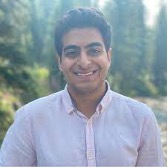Career Outcomes
Your Success Story Is Waiting… The ability to communicate complex scientific concepts to the public in an understandable way is an important skill for many professions. Our students find exciting opportunities in the fields of science journalism, management consulting, public health, engineering and pharmaceutical sales, science policy, public relations, leadership positions in high-technology industries, and more.
Career Opportunities
Science Journalism
Television, radio, and newspapers need journalists who understand science and can communicate effectively. Professional organizations like the American Chemical Society must communicate not only to their members, but also to the public. Writers for special interest magazines, like Discovery and Popular Science, write about science, engineering, and technology to a savvy and interested public audience.
Public Health
In many areas of public health (public health medicine and nursing, genetic counseling, biostatistics research, infectious disease study, and more), it is critical that important medical concepts be described in terms that the lay public can understand. Public policy issues such as water fluoridation must be described to the voting public in a manner that permits them to make intelligent decisions.
Medicine
All physicians, dentists, nurses, and other health professionals who treat patients must be able to communicate complex concepts about health and treatment to be effective. They are also called upon frequently to speak to the media and to various groups and organizations about topics relating to health.
Hospital Outreach
Outreach professionals who work in a hospital environment must communicate equally well with medical professionals, patients, staff, and the community in which they work.
Education
The science teacher is one of the ultimate communicators of science to the public with far-reaching effects. Teachers play a critical role in instilling in young people a curiosity and an interest in science. They also influence those who enjoy it most to enter into careers in the field.
Pharmaceutical and Medical Instrumentation Sales
To be effective in these high-profile industries, sales personnel must have an in-depth understanding of the natural sciences, as well as a facility in interpersonal communications.
Engineering Sales
Manufacturers of engineering equipment market their products to a population that frequently does not understand technical language. Salespeople must therefore not only understand the technical aspects of their products but must also be able to translate this knowledge to their customers.
Science Novelist
Science is exciting and intriguing, and scientists and engineers are personalities whose stories are fascinating. Thrilling detective stories and emotionally charged personal stories are waiting to be written.
Public Relations
The high-technology industry needs public relations professionals to describe products and activities to the public. Public relations is also important to science-related governmental agencies and science and engineering professional societies.
Management Consulting
Management consulting firms rely on science communicators to advise non-technical clients on the ways science and technology can enhance their business.
Environmental Law
Lawyers and legislators who are involved in environmental affairs and in litigation must be familiar with the language and concepts of science and engineering.
Legislative Staff
Legislators need staff members who understand technology and can advise them on matters relating to science and the environment.
Alumni Stories
Karan Mirpuri BA’23
Karan was a double major in communication of science and technology and child development and plans to pursue a career in pediatric medicine. Mirpuri was co-director of Camp Kesem at Vanderbilt, president of CSET Student Affiliates Association, and participated as VUceptor for three years. While at Vanderbilt, Karan received the Walther Award for VUcept Excellence in Student Success, was named one of Vanderbilt’s 10 Outstanding Seniors, and received the David A. Weintraub Outstanding CSET Major award.
Karan was completely immersed in the practice of science communication. He published the book, Tasting YOUR OWN Medicine which touches on his own experiences as a child and adolescent patient, and tells the stories of health professionals, patients, and caregivers. The book is meant to empower people of all ages to be more involved in conversations and the decision-making process with their physicians. He was inspired to write this book because he found that a lot of fear and hesitancy towards the healthcare system comes from miscommunication. During his senior year, he participated in Professor David Weintraub’s Immersion experience writing children’s books in the Who Me? series. The books introduce science concepts, promote stronger identification with scientists of all backgrounds, and establish a foundation of science literacy that children can carry forward throughout their lives.
Currently, Karan is attending medical school at the University of Washington, St. Louis. There he is considering either pediatrics (because he loves working with children), or geriatrics, because he believes we need more people in healthcare to help the elderly navigate their health. Regardless, he wants to practice medicine and improve the accessibility of healthcare services to underserved communities.

